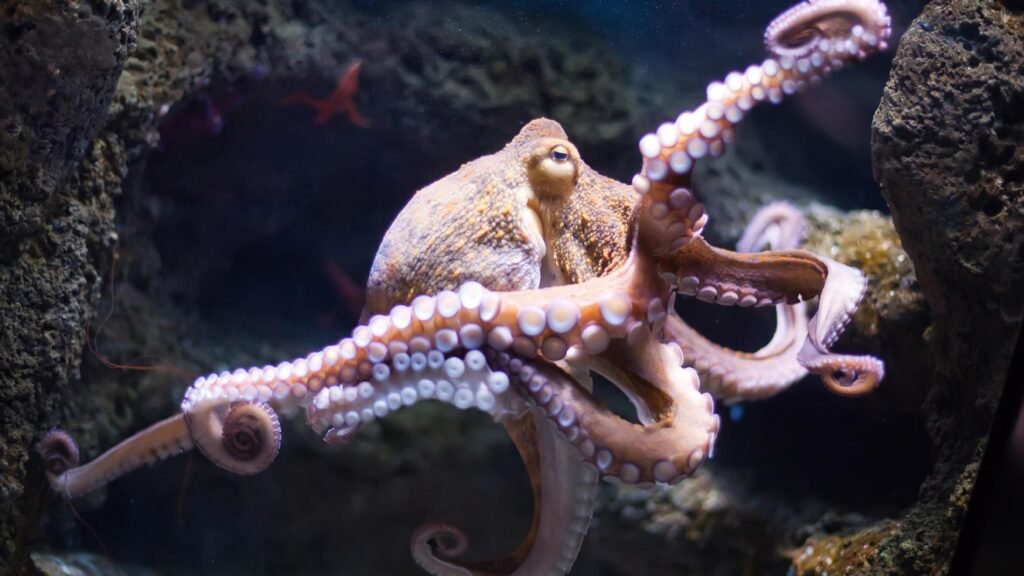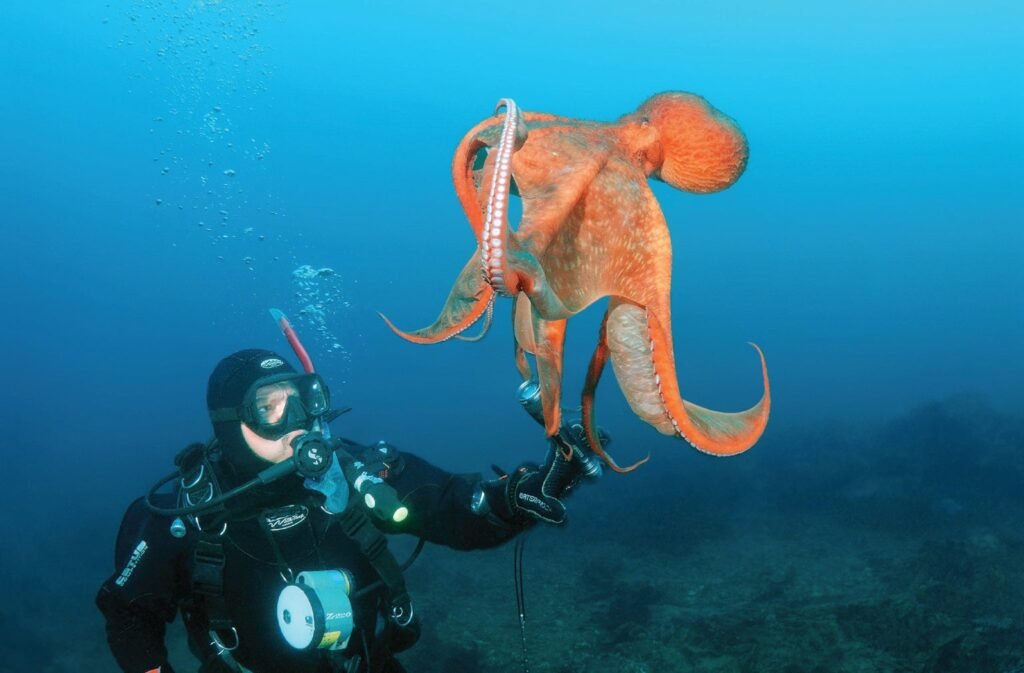Assistant professor of neuroscience Gül Dölen, Ph.D. at Johns Hopkins University recently published her study of social behavior of the two-spot octopus. They usually are very asocial creatures and spend most of the time searching for food, hiding, and asocial males avoid asocial females until they are ready to mate. But after bathing them in MDMA they showed acted differently from their usual behavior. She quoted “after treating them with MDMA, they just embraced with multiple arms”.
MDMA is used to trigger pro-social behavior in lab rats and humans but it has never been witnessed before in invertebrates. Invertebrates are completely different from vertebrates they have no backbone former have completely different brains and wildly divergent bodies. For a very long time, scientists thought that invertebrates lack the capacity of being social. But this new study suggests that they deserve a second look.
Gül Dölen said that because of improvements in molecular genetic analysis researchers are beginning to understand the chemistry behind the evolution of invertebrates and vertebrates, and how both evolved from the same ancestors. This study will have a powerful impact on the study of the evolution of brains. This study will shed light on why MDMA-Assisted Therapy is useful to treat post-traumatic stress disorder and anxiety.

Octopuses are the first intelligent life of Earth they have no bones at all and have 33,000 genes. The body of an octopus is completely alien to the body of a human. They are separated from humans by more than 500 million years of evolution. But both still share a crucial similarity. Their brain also contains serotonin transporter which enables the binding of MDMA much like the brain of a human. Serotonin plays an important role in our body. It regulates our mood, social behavior, sexual desires, and sleep. Serotonin is an ancient neurotransmitter. Both vertebrates and invertebrates share serotonin. Gül Dölen and her team hypothesized this before they even engaged octopuses with MDMA.
They needed to ensure that after all these millions of years of evolution if octopuses still can bind to serotonin. But after studying the genome that encodes the serotonin transporter they found out the gene is still conserved and is still is 50 to 60 percent similar to humans. This suggested that MDMA can enter the brain of octopus and can encode socialism.
Scientists used to think that invertebrates are incapable of being social but with time they have started to accept that invertebrates are capable of being social. All these recent studies of invertebrates have led to some serious shifts in old traditional thinking.

Serotonin plays an important role in the human body and it’s a major factor behind our emotional behavior and the fact that an octopus can bind serotonin is truly interesting. This shows how serotonin after all these hundreds of millions of years serotonin is still conserved.
As we discussed that they are asocial creatures but during her study when she bathed them in serotonin for 10 minutes and then washed them with saline for 20 minutes. After doing all of this when she placed them in the aquarium designed to study the behavior of octopuses she found out they all started exhibiting social behavior and they were interacting with each other with their arms. She said it was like an eight-armed hug.
The behavioral neuroscience of cephalopods is still to be explored so the community welcomed her paper. But there are still questions that need an explanation.
